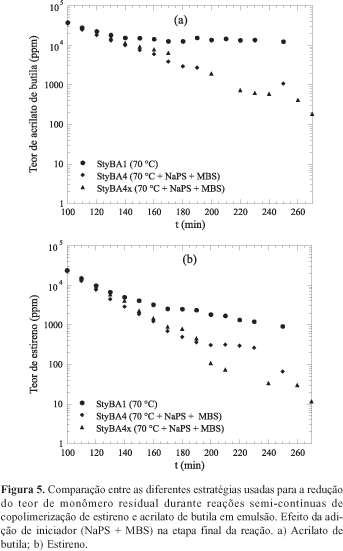Reducing the residual monomer content is a major concern of every polymer producer, as products with no, or very low levels of residual monomer have a marked commercial appeal. Styrene / butyl acrylate copolymers produced in emulsion polymerization reactions are widely applied in paper and paint industries. In this work, several strategies to reduce the residual monomer content of styrene and butyl acrylate copolymers produced in semicontinuous emulsion polymerization reactions are presented and tested. These strategies involve the continuous addition of initiator, increasing the reaction temperature during the last stage of the reaction, and adding a reducing agent or an initiator that is soluble in the organic phase at this last stage. The adequate combination of some of these techniques may result in a significant reduction of the residual monomer content in the final latex.
Residual monomer content; emulsion; postpolymerization; styrene; butyl acrylate









